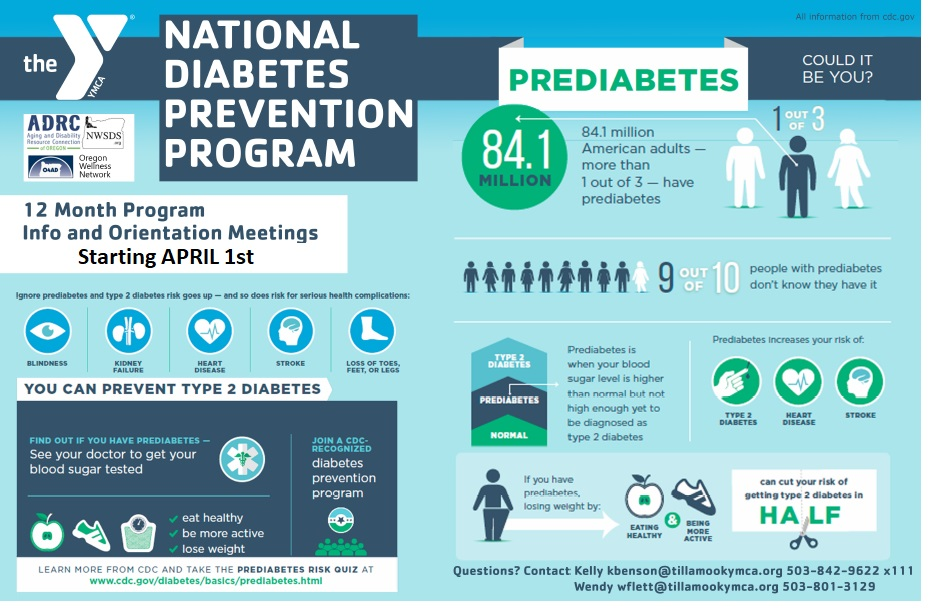
by Guest | Mar 21, 2019 | Being Well
Community organizations are working together to focus on improving the wellness of citizens in Tillamook County. During the past year, members of the Tillamook County Wellness Task Force and committees have focused attention on one health issue – reducing the percentage of people in Tillamook County at risk for Type 2 diabetes over the next 10 years. Currently 11.3% of the population in Tillamook County have type 2 diabetes. Based on current research, nearly 30% of our population is at risk for “pre-diabetes” and most don’t even know it. A large study concluded that healthier eating patterns, increased physical activity and moderate weight loss can reduce a person’s risk for developing diabetes by as much as 58%.
What is the difference between Type 1 and Type 2 diabetes? Both Type 1 and Type 2 diabetes involve problems with the hormone insulin effectively managing blood sugar levels. Type 1 diabetes occurs when the body lacks the ability to produce insulin well, whereas, Type 2 diabetes occurs when the body does not properly use the insulin the body is producing.
What is Prediabetes? This is a stage before people develop type 2 diabetes and it occurs when a person’s blood sugar levels are consistently higher than normal but not yet high enough to be diagnosed as diabetes. There are not always symptoms, so most adults living with prediabetes likely do not know. However, prediabetes does not automatically lead to diabetes, and can be fully reversed with healthy lifestyle changes and even small decreases in weight.
What is Diabetes? Diabetes is a group of chronic conditions in which the body has a hard time controlling blood sugar on its own due to issues with the making or using of insulin. For those without diabetes, the body knows exactly when and how much to make to break down the sugars and starches we eat. For a person living with diabetes, this process doesn’t happen exactly as it should.
How does someone know if they have diabetes or prediabetes? There are several methods medical providers can use to determine diabetes risk. Screening tools and blood tests measuring blood glucose, or blood sugar, levels can provide a good indication of risk. Another blood test, referred to as the A1C, measures average blood sugar levels over a three-month period. An A1C of 5.6 or lower is considered normal. A person with an A1C of 6.4 or higher would be diagnosed with diabetes. Scores falling within the range of 5.7-6.4 are considered prediabetes.
To learn more, take a type 2 diabetes risk test on-line. Talk with your primary care physician about your risk factors and blood test options. If you have already received a prediabetes diagnosis or are interested in learning more, sign up for the upcoming YMCA Diabetes Prevention Program orientation on April 1st. For more information, call 503-842-9622 ext. 111.
Or go to www.tillamookcountyhealthmatters for more information. Watch for more information about upcoming Tillamook County Wellness committee projects that will help our communities to be happier and healthier, while reducing diabetes.
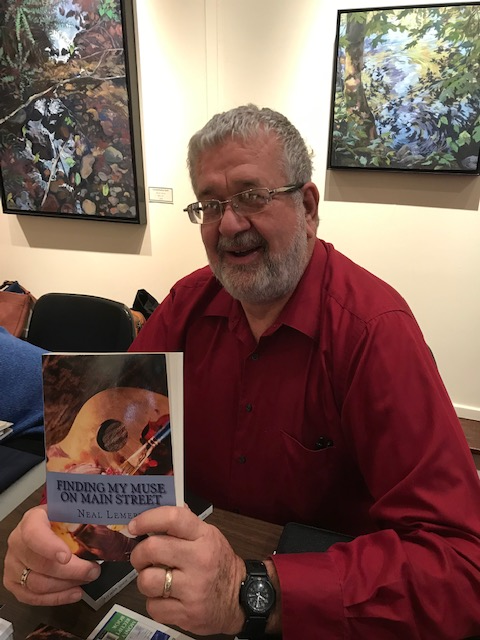
by Guest | Feb 22, 2019 | Being Well
A well-known face to many in Tillamook is Neal Lemery – some may have met him in his role as Justice of the Peace and Tillamook municipal court judge during the past decade, or now as the “community volunteer”, a board member for the Library, Master Gardeners, Fairview Grange and Art Accelerated. Lemery has always taken an active role in his community and is a renaissance man with many interests. With his retirement half a dozen years ago, Neal found the time to explore his many interests, including writing and has authored three books and many articles and blogs which he generously shares with many audiences. While chatting one day, he mentioned in an offhanded way, “Well that was after my heart attack.”
With February being “heart” month, and Tillamook County Wellness focus on sharing community members’ health behavior change stories, we asked Neal to tell us more about his wellness wake up call.
As Neal explained, being a lawyer and judge is known to be a high stress occupation, and while he was aware of the impacts, he wasn’t always proactive about making changes. In early 2011, he was experiencing extreme back pain, after several days, a lot of ibuprofen and it wasn’t getting better, his wife insisted that he go see his doctor. Grudgingly, Lemery headed to see Dr. B (Dr. Paul Betlinski at the Tillamook County Health Centers). Waiting patiently, Dr. B came out and asked why he was there and quickly assessed Lemery was having a heart attack. “Looking back now, it was all very surreal,” explained Lemery. “On the ambulance ride to Portland, I was very calm, ‘okay, so this is it.’ I thought.” Lemery’s father had died from a heart attack, and not known to him at the time, on the same day years earlier, as Neal’s ambulance ride. “What a coincidence, right?” commented Lemery.
Before his heart attack, Lemery explains that he was aware of healthy eating, but it wasn’t a focus, and exercise was something he did “sometimes.”
Fortunately for Neal, his heart procedure was successful, but the life-changing part came from a “heart-to-heart” with the cardiac nurse in the ICU, “She told me, lectured me, that I was being given another chance but it was up to me to have the right attitude and a desire to live,” explained Lemery. “I decided right then to make some changes and it wasn’t that drastic. Eat better and walking, take my medication – I was stunned when my cardiologist explained that over half of heart patients don’t take their meds.”
Lemery’s new lease on life had its challenges. About nine months after his surgery and during his healing process he wrote out his step-by-step guide on “How to be a Good Heart Patient.” He shares his ups and downs – “The depression can kill you,” he said, “The mind-body connection is amazing.” Describing himself as a “Zen Druid”, Lemery said that his time spent in nature, and as a creature of the earth were especially healing, to provide a healthy view to live life to the fullest.
“That’s why the work of Tillamook County Wellness fits for me,” said Lemery. “I’m always preaching the gospel about a positive mental attitude and an intentional desire for the important things, like family, friends and good health. I’ve become kind of an evangelist about this,” he chuckled.
Here an edited version of Neal Lemery’s “How to be a Good Heart Patient.”
- Be involved in your care. Ask questions during your doctor’s visit. Understand your diagnosis. Understand the medication strategy, the exercise strategy, the dynamics of the treatment.
- Be organized with your medication – use a pill-reminder with a copy of your meds list (printed out by your doctor) on the inside door of the cabinet you keep all your pill bottles and your pill box. Understand your meds. Knowing WHY you take a med is essential to engage your mental process into healing. Some meds need to be taken with food. Read all the info about your meds and the side effects. You WILL have side effects from some of the meds. Knowing that will ease your anxiety when you do experience the side effect.
- Adopt the mindset that all your food is medication for your body.Ask yourself if what you are putting in your mouth is nurturing your body.
- Keep a log book. Writing things down makes you more aware and focused on healing and getting stronger. It creates a self-reward system.
- Be systematic with exercise. Be aware of your body. Muscles strengthen by being used. Your body will tell you a lot. Treat yourself to special exercise clothes.
- Eat Mindfully. If the body is lacking in something, you may find yourself drawn to foods with that nutrient. Notice “cravings” and why you might be getting them. A mug of wild sweet orange tea in the evening, with a bit of honey, is my dessert.
- Have a support team. You, your log book, your spouse. Informally, I had a few friends and work acquaintances who had heart issues around the same time, and we’d connect with each other, occasionally having coffee.
- You will experience sudden, intense spurts of depression. It is part of the recovery from trauma. This will pass. Work through it. Exercise helps. Let your spouse know this is a natural phenomenon and that you are aware of it.
- Seize life. Life is precious. Do what you want to do. Don’t put it off. After my heart attack, I realized I wanted to go to California to see my foster son and his new house. So, six weeks later, I went. A reward for doing my fitness and nutrition regimen.
- I’ve found I’m a bit more blunt, and a lot more into doing things now and not “later”. So, I don’t do stuff I really don’t care to do anymore. Its liberating.
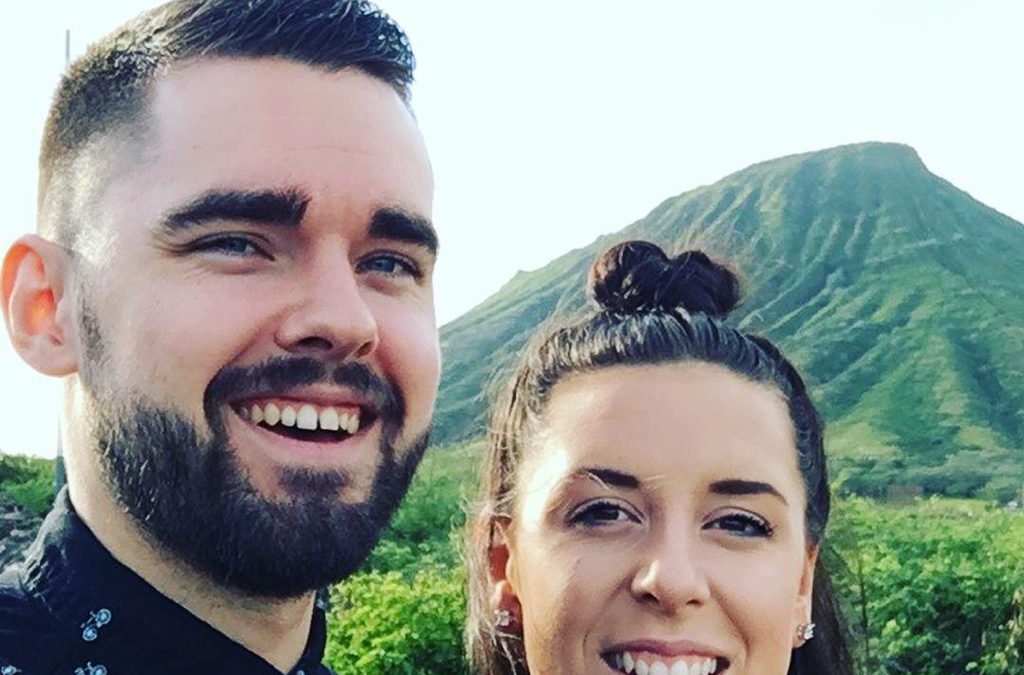
by Michelle | Jan 31, 2019 | Being Well
Making Simple Changes to Feel Better
Ian Fauver, 26, looks like a guy whose got it all together. He just started his career working at a local bank and is newly married. On the inside, however, he wasn’t feeling so good and he decided he needed to do something about it.
Recently, Fauver began experiencing debilitating digestive symptoms. He was lethargic, bloated and “just felt sick all the time.” It got so bad, he began calling in sick at work and was struggling with anxiety. He visited his primary care doctor, and listened to advice from friends, but he just wasn’t getting to the root cause of his symptoms. He became very discouraged. “I found that doing what other people said worked for them, was not working for me. I had to figure things out for myself.”
He started paying attention to how he felt after eating and noticed patterns of food sensitivity. Wanting desperately to feel better, he began preparing all his own meals, monitoring his food intake carefully and making changes based on how he felt. He read food labels and was careful to eat a balanced diet of healthy, whole foods. The results were astonishing. His stomach sensitivity improved dramatically. He had more energy and his anxiety improved. He also noticed he was saving a lot of money by not eating out.
Fauver credits his mom and his best friend as being the biggest influences along his health journey. “My mom has always been really ‘health forward.’ She used to be very overweight and worked to lose a lot of weight.” Fauver says his mom became very health conscious, sees a Naturopath and is a very spiritual person. In thinking about his mom, Fauver decided the issues he was having provided a good opportunity to make some lifestyle changes of his own, including reading the Bible and reconnecting with God.
The other main influence in Fauver’s life has been best friend, Ollie, who he also describes as being “health forward.” Ollie, also 26, attended Nursing school and has been a “gym rat” since high school. Ollie tried to get Ian to join him in the gym over the years but lifting weights just wasn’t Ian’s thing. Growing up, Fauver was active in sports but was able to show up and participate without doing any formal training. “You have to have your own reason for doing stuff. Just because someone else does it, doesn’t mean it’s going to work for you.” Ian knew he wasn’t into lifting weights, but he did miss being physically active. “I didn’t want to get bogged down with having to learn workout routines. I just wanted something simple.” He began going to the gym for a cardio workout on the treadmill, bike or rowing machine before work each morning. Fauver says, “working out has been a total blessing.” In fact, he has even added weight lifting to his morning routine and is loving how it makes him feel.
“I just feel a glow. Everything I have done has made a black-and-white difference. I have such a sense of accomplishment and it gives me the motivation to keep going with the changes I have made.
Visit tillamookcountyhealthmatters.org for more local wellness information and inspiration.
# # #
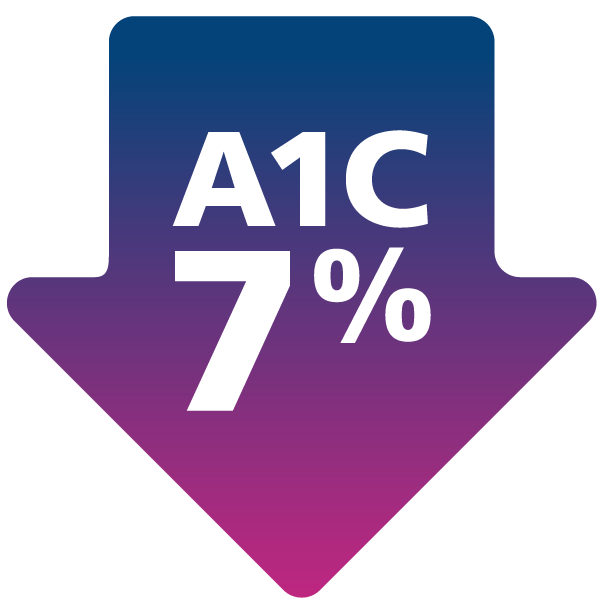
by Guest | Jan 24, 2019 | Being Well
Type 2 Diabetes: Let’s all work to prevent it
Peggy Spangler, OSU Dietetic Intern, working with Oregon Dairy and Nutrition Council
How can I prevent diabetes?
We’ve been hearing a lot about diabetes as a priority issue for Tillamook County Wellness (formerly YOW). About 11% of our county residents have diabetes. Another 25% of residents may have prediabetes. Plus, 9 out of 10 of those 25% may not even know they have prediabetes. These are concerning numbers.
What should I know about diabetes?
Diabetes occurs when your blood sugar (glucose) is too high. Glucose comes from the foods we eat. Our cells need this glucose for energy. Insulin is a hormone that helps the glucose move from the blood into our cells. In prediabetes or type 2 diabetes, the body is not making enough insulin or the insulin is not working well. Then the glucose stays in the blood where it causes problems. High blood sugar can lead to heart disease, stroke, kidney damage, blindness, and amputations.
So what does it mean to have prediabetes?
Your doctor can test your blood sugar level. If the level is high, you may be diagnosed with prediabetes or diabetes. Prediabetes means your insulin is not working as well as it should. This is called insulin resistance and puts you at risk of developing type 2 diabetes. Prediabetes can be reversed. But if you are diagnosed with prediabetes, you have a 50% chance of developing type 2 diabetes within 5-10 years.
How do I know if I am at risk of prediabetes?
Several factors have been found to increase risk for prediabetes. Some of these can’t be changed like being age 45 and older, having a family member with diabetes, and being a member of a high risk race or ethnicity. There are other factors we can change like being overweight and inactive.
So how can I reduce my risk and prevent prediabetes and type 2 diabetes?
The Diabetes Prevention Program (DPP) studied how to prevent type 2 diabetes. This study showed that lifestyle changes reduced the incidence of type 2 diabetes by 58% over 3 years. They found that losing 5-7% of weight reduced the risk of developing diabetes in overweight people. That means losing 10 to 14 pounds for a 200 pound person.
In addition, exercise helps. The American Diabetes Association recommends a moderate activity, like brisk walking, for 150 minutes per week or about 20 minutes each day. Talk to your doctor before starting an exercise program if you have not been active.
Do I need a special diet?
No, if you are overweight, cutting calories modestly can help with weight loss. Some of the steps for healthy weight loss include eating smaller portions, cutting back on foods high in calories, fat, and sugar. Also, drinking water instead of drinks with added sugar can help. It is important to make sure you are continuing to get the nutrients you need by following a healthy eating pattern.
So what is a healthy eating pattern?
A healthy eating pattern includes eating a variety of vegetables, fruits, grains, dairy foods, lean proteins, and oils. You should include dark green, red, and orange vegetables. Try to make half your grains whole grains. Also, eat lean proteins and eat more fat free or lower fat dairy foods. The 2015 Dietary Guidelines for Americans note that a healthy eating pattern is linked to a reduced risk for diabetes. Research continues and the American Diabetes Association says including nuts, berries, yogurt, coffee, and tea in your diet may lead to a reduced risk of diabetes.
The good news is that we can be a healthier community. We can work to reduce our risk of developing diabetes by following a healthy eating pattern, exercising, and working to achieve a modest weight loss if we are overweight.
References:
American Diabetes Association. Prevention or delay of type 2 diabetes. Sec. 5. In Standards of Medical Care in Diabetes – 2018. Diabetes Care 2018; 41 (Suppl. 1): S51-S54. http://care.diabetesjournals.org/content/diacare/41/Supplement_1/S51.full.pdf
Centers for Disease Control. Diabetes Report Card 2017. https://www.cdc.gov/diabetes/pdfs/library/diabetesreportcard2017-508.pdf
Diabetes Prevention Program Research Group. 2015. Long-term effects of lifestyle intervention or metformin on diabetes development and microvascular complications over 15-year follow-up: the Diabetes Prevention Program Outcomes Study. The Lancet: Diabetes & Endocrinology. 3(11):866‒875
Jenck, M. February 23, 2018. Can you hear me now? http://tillamookcountyhealthmatters.org/can-you-hear-me-now/
Linnell, J. April 20, 2018. A culture of collaboration is the key to preventing type 2 diabetes.
http://tillamookcountyhealthmatters.org/a-culture-of-collaboration-is-the-key-to-preventing-type-2-diabetes/
National Institute of Diabetes and Digestive and Kidney Disease. May 2018. Insulin resistance and prediabetes. https://www.niddk.nih.gov/health-information/diabetes/overview/what-is-diabetes/prediabetes-insulin-resistance
National Institute of Diabetes and Digestive and Kidney Disease. February 2017. Preventing type 2 diabetes, your game plan to prevent type 2 diabetes. https://www.niddk.nih.gov/health-information/diabetes/overview/preventing-type-2-diabetes/game-plan#plan
U.S. Department of Health and Human Services and U.S. Department of Agriculture. 2015-2020 Dietary Guidelines for Americans. 8th Edition. December 2015. Available at http://health.gov/dietaryguidelines/2015/guidelines/
.
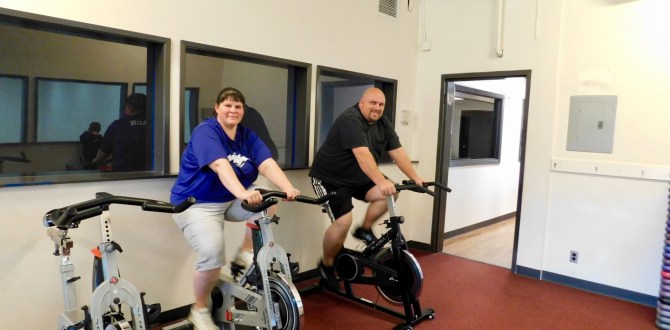
by Michelle | Jan 11, 2019 | Being Well
Tillamook couple makes positive health and lifestyle transformation with innovative program
By Patti Atkins, APR, Columbia Pacific CCO
TILLAMOOK, Ore. — When Mandie Phipps was diagnosed with pre-diabetes, she knew that she was going to have to make some significant changes to improve her health. But when her partner, Shawn Parker, decided to join her and include the whole family, they were able to transform their lives for the better.
Columbia Pacific’s Community Advisory Council in Tillamook County teamed up with local health care providers, OSU Extension and Tillamook Family YMCA to offer an evidence-based Diabetes Prevention Program that was developed by the Centers for Disease Control for members on Oregon Health Plan. The instructor was trained as a certified Community Health Worker through a partnership that was forged with OSU Extension.
Beginning with diagnosis, the yearlong pilot program encourages participants to learn more about diabetes, diet, exercise and healthy lifestyle changes. The participants can also join the YMCA for one-third of the cost, the other two thirds are covered by Columbia Pacific CCO and the YMCA.
“My health care provider at Tillamook Regional Medical Center gave me a prescription for the program,” said Phipps. “I realized that this was very serious and that I was going to need to make some significant changes to stay healthy.”
“I joined Mandie for moral support,” said Parker. “But in the first class we took a test where I learned that I was at high risk for pre-diabetes as well. We realized that we were going have to overhaul our entire lifestyle.”
“In the classes, we learned about how to evaluate healthy food choices,” Phipps continued. “We read labels, count calories and fat in everything we eat now. We began to practice good portion control. We have almost cut out all soda and drink water about 90 percent of the time. And we added walking as a family activity in the evenings instead of just hitting the couch and watching TV.”
“We used the activity trail at the middle school, next to our house, as a walking path after dinner to spend quality time together as a family. We focused on our diet first and lost most of our weight. Then we slowly added exercise. Since we started in April, Mandie is down 31 pounds and I’m down 40 pounds. And we are still losing weight, even when we take time off for vacations and holidays. Our children are in sports now as well. It’s helping the whole family be healthy.”
At the end of the first year, program collaborators will decide how to improve or continue this project. More information will be announced.
____________________________________________________________________________
About Columbia Pacific Coordinated Care Organization
Established in September 2012, Columbia Pacific CCO coordinates health services for more than 25,000 Oregon Health Plan members in Columbia, Clatsop and Tillamook counties. For more information, please visit www.colpachealth.org.
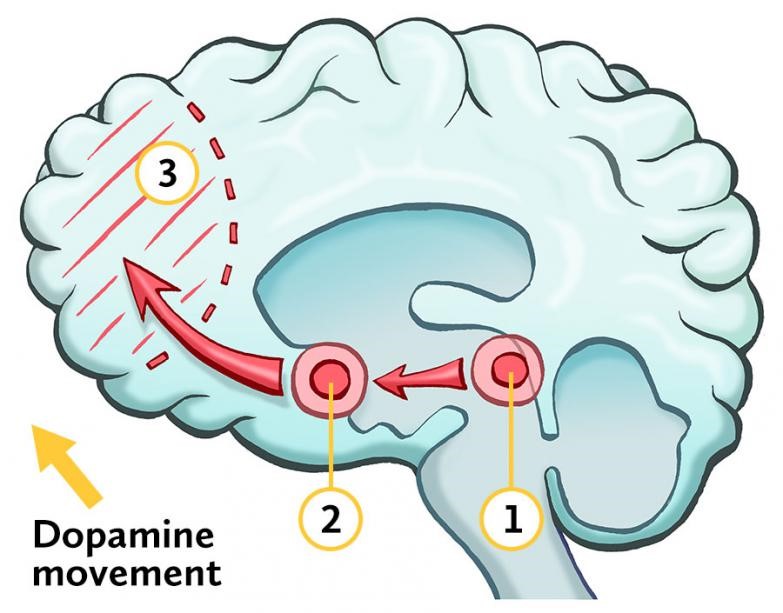
by Michelle | Jan 3, 2019 | Being Well
The Gift of Resiliency: Protecting a Growing Brain
By DeAnna Pearl, M.A.T, B.S., Certified Prevention Specialist, SOS Tillamook – Prevention, Tillamook Family Counseling Center
What does it take to build resiliency in ourselves? What is resiliency? The definition is the ability to overcome challenges of all kinds–trauma, tragedy, personal crises, plain ole life problems–and bounce back stronger, wiser, and more personally powerful.
It’s important because this is what we need to do when faced with life’s inevitable difficulties. AND it’s important because there is a growing social science research showing that you can bounce back, even from a lifetime of “risk factors” or very painful trauma or tragedy, and how you help those you care about bounce back.
However, it takes clear steps to create a safe and healthy community. There is a reason for age restrictions for legal use of alcohol, marijuana, tobacco, gambling, etc. The brain has not fully developed its regulatory system (frontal lobe) until the average age of 23. The resiliency factors that a community can provide greatly impact the access and exposure to risk factors during the most formable brain growing years, ages 0-24. The use of drugs and alcohol at an early age can hardwire the brain and can lead to abuse and addiction.
The simple act of reducing the normalization of use, abuse and addiction is a protective factor. Example, not providing scratch-it tickets in Christmas stockings reduces the potential brain pathways that can lead to highs and lows of gambling. Disallowing the casual use of alcohol under adult “supervision.” The brain makes connections with all of these experiences which can actually hard-wire it for future use, abuse and addiction.
Until the average age of 23, the brain is especially focused on seeking fun and easy entertainment. It first routes decision making through the (1) emotion center (amygdala) resulting in fight, flight, freeze or “freak out” responses. The dopamine, “feel good” chemical, quickly rewards the (2) pleasure center (nucleus accumbens) which then sends a signal to the (3) frontal lobe (where decisions and judgments are made) causing a reaction. Note: This is the last part of the brain to fully mature and does not have full facility to reason consequences or control impulses.
Continuous exposure to quick fixes such as gambling, drugs, alcohol, marijuana, opioids, sex and violence, means greater potential to be hard wired for external stimuli thus causing the potential cycle of addiction.
Can individuals learn to be more resilient, or are some just born with the ability to bounce back from adversity? Both! Research suggests that human beings are born with an innate self-righting ability, which can be helped or hindered. The findings are fueling a major shift in thinking about human development. Instead of obsessing about problems and weaknesses (splat factor) we are beginning to recognize “the power of the positive” (bounce factor). Identifying and building individual and environmental strengths better support helping people overcome difficulties, achieve happiness, and attain life success.






